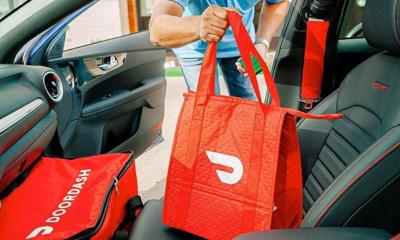
NEW YORK - DoorDash and other food-delivery companies have won a court ruling that stops a New York City law requiring they provide restaurants extra information on customers.
Federal judge Analisa Torres on June 30 put a stop to the city's Customer Data Law, enacted in 2021 to support restaurants that use delivery services like Grubhub and Uber Eats.
Previously, those services needed only to give the restaurants the customer's first name, first initial of their last name and what was ordered. The 2021 law added the full name, email address, phone number and delivery address.
The three delivery services went to court nearly four years ago to challenge the law as violating the U.S. Constitution. Torres agreed it violated the First Amendment, granting summary judgment to the deliverers.
"The City may prefer that restaurants have access to customer data, but a mere preference for one industry over another is not a substantial state interest," Torres wrote.
"Even if the Court were to find that the City has a substantial interest in ensuring that restaurants obtain data about customers who order food, it has not demonstrated that the Customer Data Law is appropriately tailored to this goal."
Customers could opt out of having delivery services share the information with restaurants, but the Customer Data Law presumes they consent to disclosure. Restaurants were forbidden from using the information in exchange for "financial benefit."
The ruling implicates millions of people in New York City. Figures showed that as of April 2023, DoorDash had about 2.5 million customers, while Uber Eats contracted with more than 16,000 businesses and Grubhub with 23,000.
Privacy policies said delivery-service users consented to the collect, use and disclosure of their data so the companies could personalize services, track deliveries and find better prices.
They also "may share user data" with social media companies and others. They sought to protect access to customers' information because it has significant value, like an "Insights Hub" tool available to restaurants.
While DoorDash and others have spent millions of dollars developing their products, New York City agreed that they would have to spend even more to comply with the Customer Data Law.
Torres rejected the City's First Amendment defense that the companies are passive intermediaries for diners' speech.
"Plaintiffs are not mere transmitters of information: they are more like brokers, making a market between the diner who is searching for food and the restaurant who is searching for customers," Torres wrote.
"Under Plaintiffs' privacy policies, individuals provide data to Plaintiffs with the understanding that Plaintiffs may disclose the information to third parties. Because Plaintiffs exercise discretion over who (if anyone) will receive customer data, they are not a mere ministerial mechanism for its dissemination."








